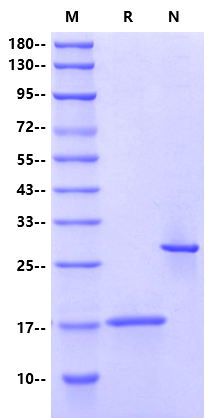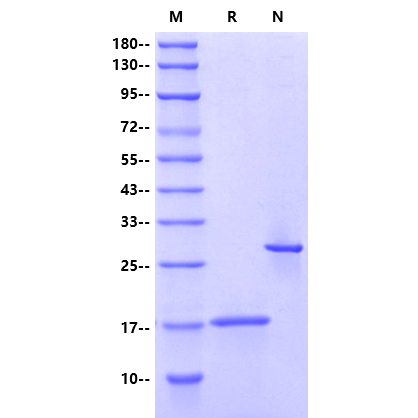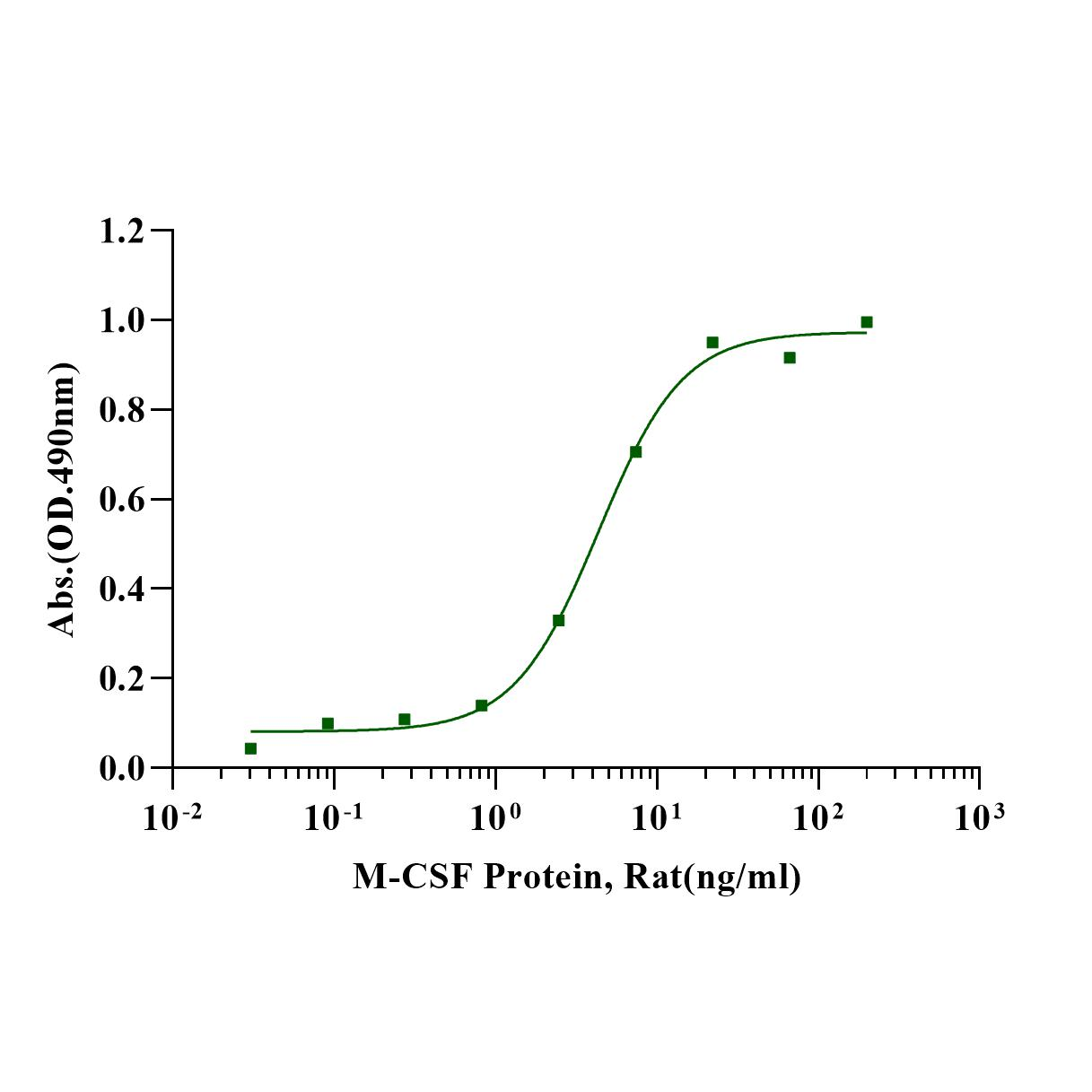Measured in a cell proliferation assay using Murine M-NFS-60 cells. The EC50 for this effect is less than 5ng/ml.
Product Details
Product Details
Product Specification
| Species | Rat |
| Synonyms | Macrophage colony-stimulating factor 1; CSF-1; MCSF; Proteoglycan acrophage colony-stimulating factor; PG-M-CSF; |
| Accession | Q8JZQ0 |
| Amino Acid Sequence | Glu33-Pro186 |
| Expression System | E.coli |
| Molecular Weight | 18 kDa (Reducing) |
| Purity | >95% by SDS-PAGE. |
| Endotoxin | <0.1EU/μg |
| Conjugation | Unconjugated |
| Tag | No Tag |
| Physical Appearance | Lyophilized powder |
| Storage Buffer | 20mM Tris, 100mM NaCl, pH8.0 |
| Reconstitution | Reconstitute at 0.1-1 mg/ml according to the size in ultrapure water after rapid centrifugation. |
| Stability & Storage |
· 12 months from date of receipt, lyophilized powder stored at -20 to -80℃. · 3 months, -20 to -80℃ under sterile conditions after reconstitution. · 1 week, 2 to 8℃ under sterile conditions after reconstitution. · Please avoid repeated freeze-thaw cycles. |
| Reference | Blood. 2012 Feb 23;119(8):1810-20. |
Background
Macrophage colony-stimulating factor (M-CSF), also known as colony-stimulating factor 1 (CSF-1), is a cytokine that plays a crucial role in the differentiation, proliferation, and survival of monocytes and macrophages. M-CSF is produced by various cell types, including fibroblasts, endothelial cells, and immune cells, and acts through binding to its receptor, CSF-1R, to regulate the development and function of macrophages in the immune system. In rats, M-CSF is essential for the maintenance of tissue homeostasis, immune responses, and inflammatory processes. Studies on rat M-CSF have focused on its role in regulating macrophage populations, tissue repair, and immune responses in various disease models.
Picture
Picture
Bioactivity

SDS-PAGE

2μg (R: reducing condition, N: non-reducing condition).




